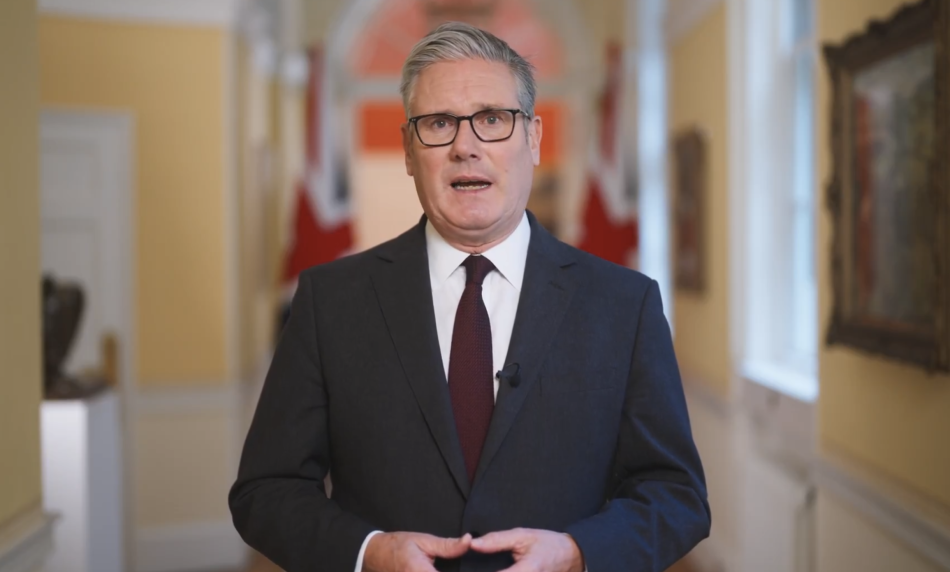This afternoon, Keir Starmer declared that the UK now formally recognises a Palestinian state. In a six-minute video, posted on X, the Prime Minister took the step that many of his colleagues have wanted him to do for months. ‘We are acting to keep alive the possibility of peace and a two-state solution’, said Starmer. He argued that the move was necessary because of the ‘growing horror’ of the Israeli offensive, insisting it did not amount to ‘a reward for Hamas’. The Labour leader urged Hamas to release the remaining hostages, with further sanctions expected in the coming weeks.
A reformed Palestinian Authority would run the new state, with provisional borders based on 1967 lines with equal land swaps, finalised as part of future negotiations. Yvette Cooper, the Foreign Secretary, is expected to write to her Palestinian counterpart in the coming days as part of the steps to establish full diplomatic relations. Recognition will allow the UK to enter treaties with Palestine and make the Palestine head of mission a fully recognised ambassador.
Today’s announcement was carefully choreographed with other nations. It came three days after the conclusion of Donald Trump’s state visit – a safe enough distance for Starmer to make his move, given the President’s vocal opposition. The Prime Minister’s video was released moments after Canada and Australia also announced formal recognition of a Palestinian state. Starmer, Mark Carney and Anthony Albanese will be hoping that, as one Labour aide put it recently, ‘there is safety in greater numbers’ and that a co-ordinated move speaks louder than unilateral action.
Starmer’s critics argue that recognition of Palestine sends the wrong message to Hamas and merely serves as a sop to the Labour backbenches. Kemi Badenoch says it ‘does nothing to stop the suffering of innocent people caught in this war’, arguing that recognition amounts to ‘discredited student union campaigns to appease the hard left’. Labour Friends of Israel warn that ‘it gives up an important diplomatic lever that can only be pulled once’. Families of the hostages abducted by Hamas on 7 October attacks have written to the Prime Minister to condemn the decision.
Starmer had only mentioned Palestine twice in his first eight years in parliament
Few within government could plausibly deny that domestic politics have had no bearing on today’s decision. For the first three years of Starmer’s leadership of the Labour party, the Middle East scarcely featured as a major issue, save for its relevance in discussions on anti-Semitism. Indeed, he had only mentioned Palestine twice in his first eight years of being an MP. That all changed on 7 October, with Starmer’s disastrous LBC interview being cited as a factor in the loss of four seats to the so-called ‘Gaza independents’ in the general election which came nine months later.
Since then, Labour ministers have desperately sought to both rebuild damaged community relations and exert a moderating influence in the region. Various steps have been taken, like the suspension of certain arms exports and the sanctioning of some Israeli ministers. But that clearly has not been enough for members of Starmer’s own party, with more than half of Labour’s MPs signing a letter in July calling for immediate recognition of a Palestinian state. Today’s decision is already being celebrated by many of them, with Luke Murphy, the new Basingstoke MP, declaring he is ‘immensely proud of our government’.
Yet one thing is for certain. Recognition is clearly not going to draw a line under a debate that has riven British politics for decades. In choosing this course of action, Starmer has renounced a prize card that successive governments have declined to use. Abroad, the risks are that it jeopardises UK-Israeli intelligence sharing and removes any remaining influence on Benjamin Netanyahu’s regime. At home, it will likely spark calls for further action on Israel – such as a boycott on goods imported to the UK from the so-called ‘occupied territories.’







Comments